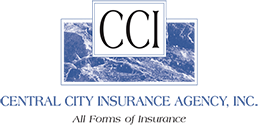Automobile Insurance
Bodily Injury Liability (BI)*
A legal liability that may arise as a result of the injury or death of another person. This coverage protects you if you are involved in an accident and you caused bodily injury to others.
Property Damage Liability (PD)*
Protection against liability for damage to the property of another, including loss of the use of the property. This coverage protects you if you are involved in an accident and you cause damage to another’s property.
*Required coverage to drive in California
Uninsured Motorists Bodily Injury (UM or UMBI)
A coverage in an automobile insurance policy under which the insurer will pay bodily injury damages to the insured for which another motorist is liable, if that motorist is unable to pay because he is uninsured. Also covered are the injuries caused by a hit-and-run driver.
Medical Payments (MED or MED PAY)
An optional coverage in auto and other public city policies, that provides for the payment of medical and similar expenses without regard for liability.
Comprehensive (COMP)
This coverage pays for the damages to your car caused by something other than a collision, such as fire, theft, vandalism, falling objects and various other perils. This coverage usually has a deductible that you pay before any recovery may be made by the insurer. On personal auto policies, this is now called “other that collision” coverage. A required coverage if your car is financed or leased.
Collision
This coverage pays for damages to your car, regardless of fault, when you collide with another vehicle or object. This coverage usually has a deductible that you pay before the insurer may make any recovery. A required coverage if your car is financed or leased.
Towing
An optional coverage that helps offset the cost of towing your vehicle. It usually allows coverage up to a fixed amount for the towing of a disabled auto.
Rental Car Reimbursement
This coverage helps offset the cost of renting a car while your car is being repaired because of a collision. It usually pays a predetermined daily amount for a certain number of days.
Property Insurance
Actual Cash Value
An amount equivalent to the replacement cost of lost or damaged property at the time of the loss, less depreciation. With regard to buildings, there is a tendency for the actual cash value to closely parallel the market value of the property.
Additional Living Expense
A contract to reimburse the insured for increased living costs when loss of property forces the insured to maintain temporary residence elsewhere. Examples of these types of expenses are the cost for a hotel or motel, the extra cost for restaurant meals, and the cost of using a Laundromat.
Loss of Use
Coverage to compensate an insured for the loss of use property if it cannot be used because of a peril covered by the policy.
Comprehensive Personal Liability
This coverage protects individuals and families from liability for all types of accidents caused by them in their personal lives as opposed to business lives. It is most commonly a part of the protection provided by a Homeowners policy.
Medical Payments (MED or MED PAY)
An optional coverage that provides for the payment of medical and similar expenses without regard for Liability.
Other Structures
Structures, such as garage or storage shed, which are separated from an insured dwelling by a clear space, or are connected only by a fence or utility line. Dwelling and Homeowner policies provide coverage for other structures.
Personal Injury
Injury other than bodily injury arising out of false arrest or detention, malicious prosecution, wrongful entry or eviction, libel or slander, or violation of a person’s right to privacy committed other than in the course of advertising, publishing, broadcasting or telecasting.
Residence Premises
In homeowners insurance, the dwelling, other structures and grounds, or that part of any other building where the named insured lives.
Replacement Cost
The cost of replacing property without a reduction for depreciation. By this method of determining value, damages for a claim would be the amount needed to replace the property using new materials.
Special Coverage Form
Any of the commercial or personal lines property forms which provide coverage on an open perils (all risk) type basis. These forms provide the broadest coverage and do not list covered perils, but do include a lengthy list of exclusions.
Basic Coverage Form
Any or the commercial lines property forms which provide basic coverages. These forms generally provide the most limited coverage, which is surpassed by broad forms and special forms.
Broad Form
A term usually used to designate policies that provide insurance for multiple types of perils over and above the usual basic perils, or additional coverages beyond standard coverages.
Peril(s)
The cause of a possible loss.
Personal Property Floater
A Broad Form policy covering all personal property worldwide, including at the insureds home. Similar coverage is available by endorsement as part of the “Special” Homeowners policy form.
Schedule
A list of the items covered by an insurance policy with their descriptions and valuations.
General Terminology
Deductible
The portion of an insured loss to be borne by the insured before any recovery may be made from the insurer.
Premium
The price of insurance protection for a specified risk for a specified period of time.
Pro Rata Cancellation
The termination of an insurance contract or bond with the premium charge being adjusted in proportion to the exact time the protection has been in force.
Short Rate Cancellation
A cancellation procedure in which the premium returned to the insured is not in direct proportion to the number of days remaining in the policy period. In effect, the insured has paid more for each day of coverage then if the policy had remained in force for the full term.
